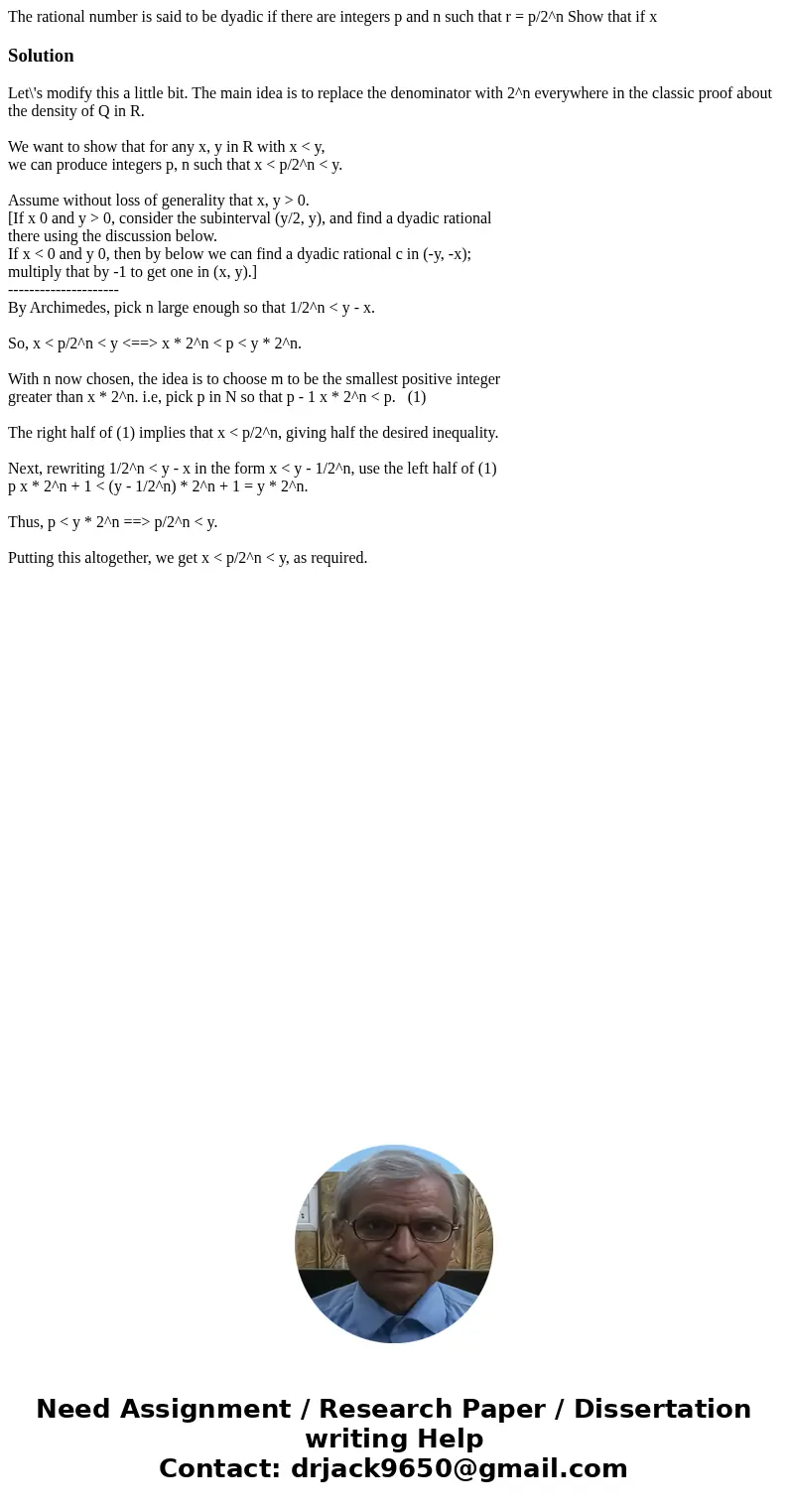The rational number is said to be dyadic if there are intege
Solution
Let\'s modify this a little bit. The main idea is to replace the denominator with 2^n everywhere in the classic proof about the density of Q in R.
We want to show that for any x, y in R with x < y,
we can produce integers p, n such that x < p/2^n < y.
Assume without loss of generality that x, y > 0.
[If x 0 and y > 0, consider the subinterval (y/2, y), and find a dyadic rational
there using the discussion below.
If x < 0 and y 0, then by below we can find a dyadic rational c in (-y, -x);
multiply that by -1 to get one in (x, y).]
---------------------
By Archimedes, pick n large enough so that 1/2^n < y - x.
So, x < p/2^n < y <==> x * 2^n < p < y * 2^n.
With n now chosen, the idea is to choose m to be the smallest positive integer
greater than x * 2^n. i.e, pick p in N so that p - 1 x * 2^n < p. (1)
The right half of (1) implies that x < p/2^n, giving half the desired inequality.
Next, rewriting 1/2^n < y - x in the form x < y - 1/2^n, use the left half of (1)
p x * 2^n + 1 < (y - 1/2^n) * 2^n + 1 = y * 2^n.
Thus, p < y * 2^n ==> p/2^n < y.
Putting this altogether, we get x < p/2^n < y, as required.

 Homework Sourse
Homework Sourse